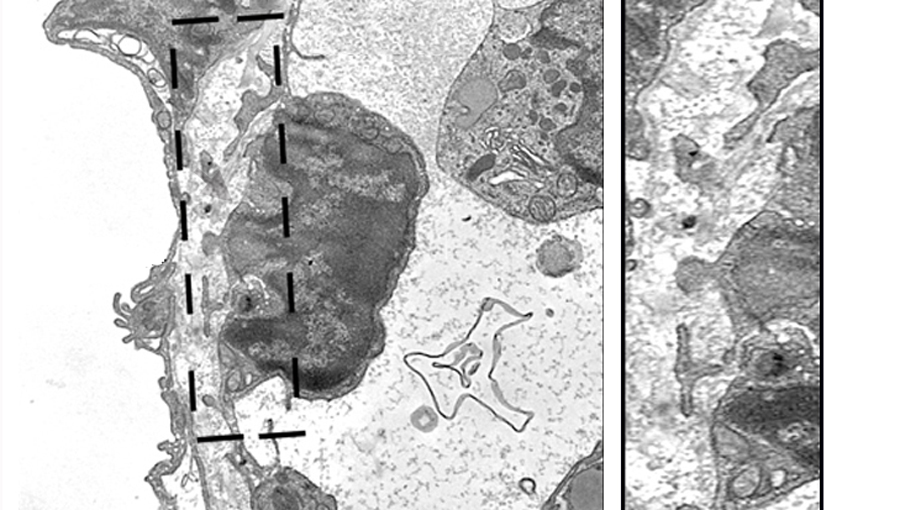Potential new treatment for metastatic colon cancer
How tumor cells create their own pathways

How does a tumor cell set up a signaling pathway in order to metastasize? Scientists at Technische Universität München’s (TUM) Klinikum rechts der Isar and Helmholtz Zentrum München have made a significant discovery in this area by studying colon cancer. They have learned that the tumor cells release certain proteins known as chemokines. In the case of metastatic colon cancer cells, the chemokine concerned is CCL2. The CCL2 chemokine docks on to the cells of the inner blood vessel walls (endothelial cells) and activates the corresponding receptor (CCR2 receptor). This connection makes the endothelial cells permeable – creating a clear path for the tumor cells.
Professor Mathias Heikenwälder of TUM’s Institute of Virology explains that the tumor cells use a clever trick to migrate: “The tumor cells outwit the endothelial cells by emitting a signal used by healthy cells.” To date, research has mainly focused on macrophage cells attracted by the chemokines of the tumors. “By understanding the role of chemokine receptors in relation to endothelial cells we have potentially uncovered a brand new approach to cancer treatment,” says Heikenwälder.
“Measuring the number of chemokines could allow us to draw clear conclusions on the likely spread of a primary tumor to other organs and predict the risk of metastasis in patients,” continues Heikenwälder. “Furthermore, the option of blocking the chemokine receptor CCR2 at the endothelial cells gives healthcare professionals a new way of preventing metastases both before and following an operation.”
For their research, the scientists used colon cancer tissue and colon cancer cell lines from mice and humans. The next steps will involve studying the findings in greater detail and examining how the new concept can be transferred to other types of cancer.
Original publication:
Monika Wolf et al., 2012. Endothelial CCR2 signaling induced by colon carcinoma cells enables extravasation via the JAK2-Stat5 and p38MAPK pathway, Cancer Cell, 07/2012.
Picture: http://mediatum.ub.tum.de/node?id=1110306
Contact:
Prof. Dr. Mathias Heikenwälder
Institute for Virology
Technische Universität München
Tel: +49.89.4140-7440
E-Mail: heikenwaelder@virologie.med.tum.de